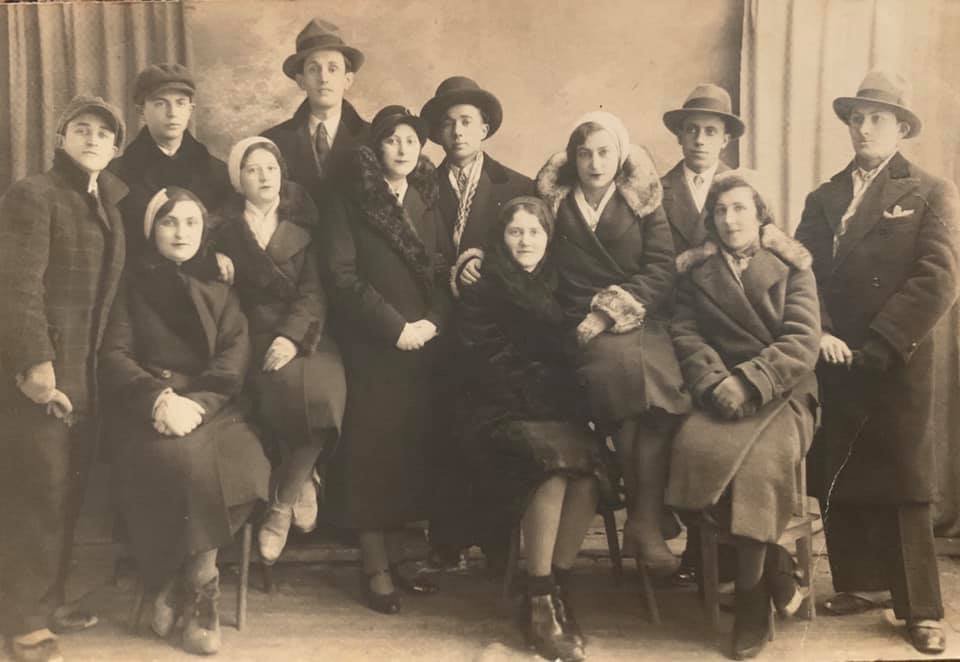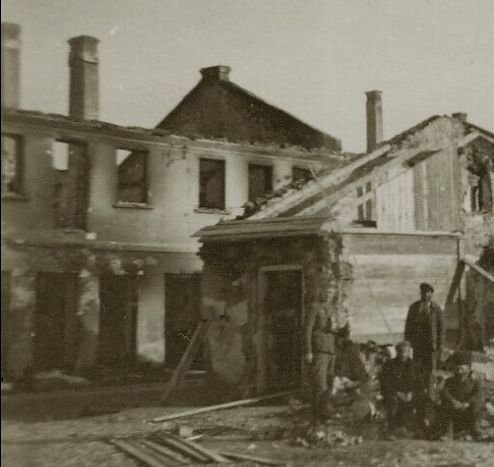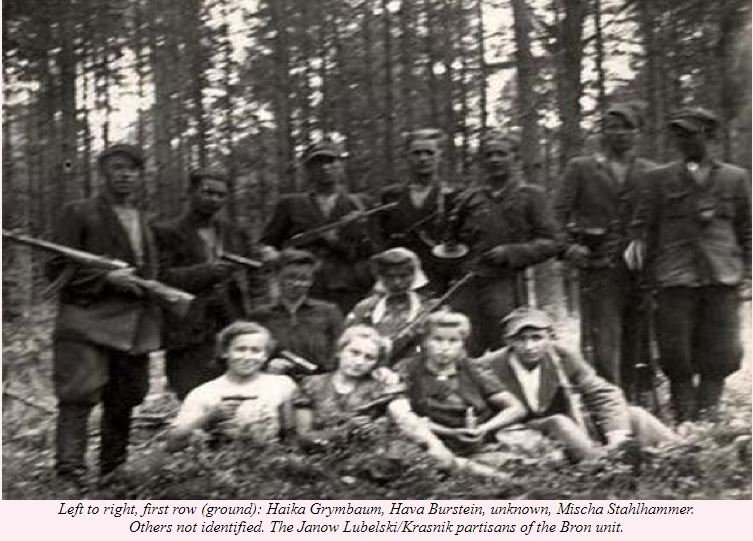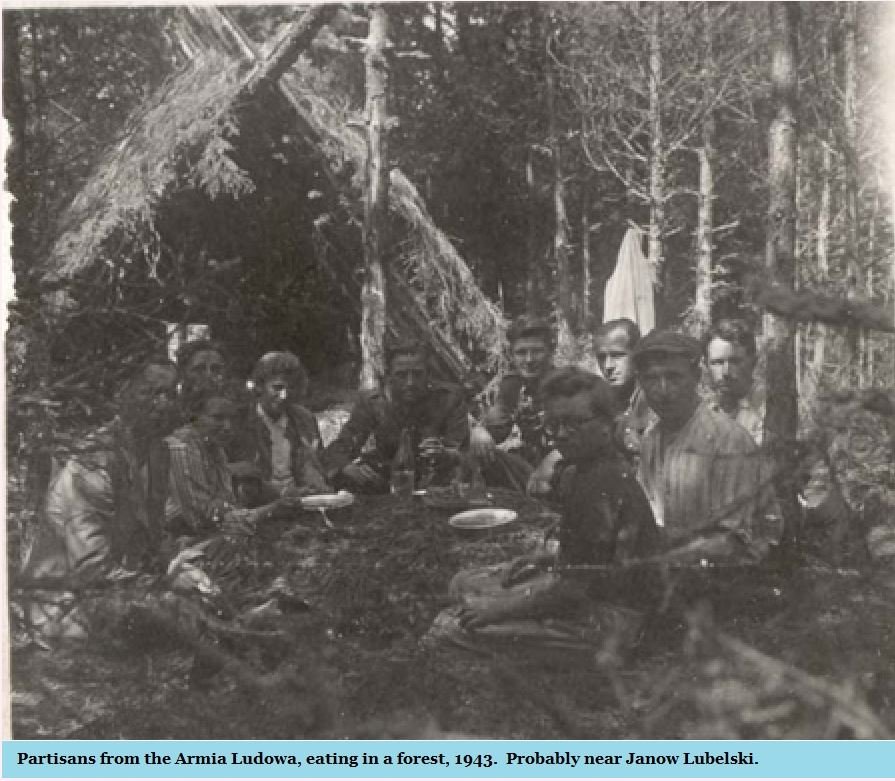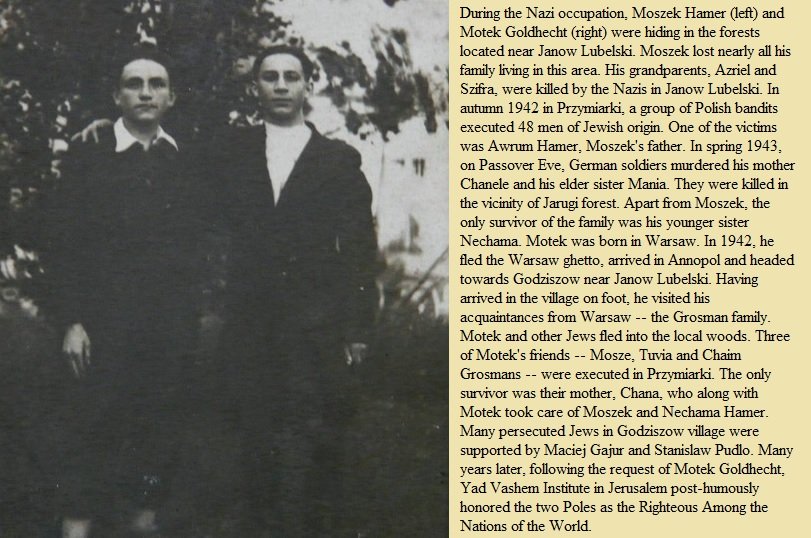Remember Jewish Janow Lubelski
Pronunciation: Yanov Loo-belsky
JANOW LUBELSKI JEWISH HISTORY
Janow Lubelski is a city in southeast Poland near to Krasnik and south and west of Lublin.
In the 16th century, Yaakov ben Yitzchak Ashkenazi, author of the "Tsenah u'Re'enah", lived in Janow Lubelski. A traveler reported in 1678 that the Jews there owned especially well-built houses. In 1770, Jewish bakers and butchers were prohibited from selling bread or meat to non-Jews, and in general from trading outside the Jewish area. There were 390 Jewish families in 1765 and 2,881 Jewish individuals who made up 44.8% of the total population of the town.
In the Janow Lubelski district in 1921 there were 13,407 Jews, representing 10 percent of the whole. By 1939, the total Jewish population of Janow Lubelski was between 2,881 and 3,500 Jews.
Janow Lubelski features in the short stories by of Isaac Bashevis Singer, including "Yentl the Yeshiva Boy", "Naftali the Storyteller and His Horse Sus", "The Beggar Said So", and "The Brooch." Several left-wing political activists were active in Janow Lubelski, including Nusym Beserman, Chaim Jagierhorn or Jagierman, Zachariasz Mussman, Symch Bron, Israel Kron and Moszko Greber.
Jewish community employees in 1926 included Icek Majer Broder, rabbi; Yaakov Icek Gelertner; Golda Lipszyc (a widow); Josef Majer Lewenkopf; Aron Szyja Kotlarski; Moszek Buchbinder; Mordko Frydman; Chil Klaperman; and Icek Glikman, janitor. Jewish cemeteries were established in Janow Lubelski in 1661 and in the 1820s. The first cemetery was near 3 Maja Street. The second was founded at Przborow street (now called Wojska Polskiego) and was larger. There is no trace of either cemetery today.
Commerce in the city included the following individuals: A. Feferkorn, soap factory; M. Kaminer, machine shop; Wolf Fink, printing house; Judka Taublib; oil mill; Moszek Szryf, oil mill; Szymon Ziss, tannery; Dawid Mussman, saw mill near Modliborzyce; Lejb Sambor, agriculture. In nearby locations, M. Regmunt had a mill in Wolka Batorska and Z. Erlich and a sawmill in Biala. In Modliborzyce, tailor ships were run by F. Ingler, Sz. Bron, Ch. Waksbojm, and J. Milichman. In Batorz, R. Borensztajn, J. Feferkichen, A. Obermajster, M. Bursztyn, and W. Bron had shops. In Chrzanow, B. Rotenberg resided and M. Milsztain ran a goods store; H. Hamer was a shoemaker; and M. Jarmul had a wind mill. In Kaweczyn, Z. Erlichster ran a hardwood store and Egiert ran a food store. In Godziszow, J. Buchnat was a blacksmith. Jewish workers in the city, including occupation, in 1929 were:
Agentury (merchandise agent): Klajner J.
Akuszerki (midwife): Kleinmintz Malg. - Obstbaum B.
Blacharze (sheet metal worker): Kron M.
Blawaty (fabric merchant): Cochsztejn H. - Erbesfeld R. - Frydman M. - Oliwa Sz. - Rubinsztejn W. - Szarfsztejn B. - Wajnryb L. - Weber I.- Justman N. - Karpel M. - Lanel A. - Unterhalter I.
Czapnicy (capmaker): Beserman J. - Englender M. - Stejnbok W. Zylberklang Z.
Drob (poultry): Ajnsztejn Sz.
Drzewo (wood sales): Frydman J. - Gotlib J. - Lebensztajn B.
Farby: Dochtman F. - Dornfeld I.
Fotograficzne zaklady (photographer studio): Frydman M. - Himmel M. - Wajsfeld H. L.
Fryzjerzy (hairdresser): Broner Ch. - Pines P. - Szarfsztajn B. - Wajsfeld Sz.
Galanteria: Elbaum Sz. - Erlichster G. - Fabrykant D. - Gryner Ch. - Rojt D. - Rojt I. - Sobol E. - Szlofman Garbarnie (leather works): Zyss Sz.
Herbaciarnie (tea sales): Domast S. - Fac J. - Foferkichen M. - Koren I.
Hotele (hotel): Szwarcman S.
Introligatorzy (book binder): Zajdman D..
Kamasznicy (rubber production): Ajlbaum R. - Fryling A.I. - Rozenblit M.
Kaszarnie (wheat, flour): Birman P. - Domast W. - Elbaum R. - Feller M. - Garbacz J. - Monat D. - Rajchonberg B. - Torom Sz. - Wajnszelbom M. Lekarze dentysci: Naftali Zylbergold
Kolonialne art (art sales): Ejbuszyc H.M.
Konfekcja (ready-made clothing): Ejbuszyc G. - Erlichster M. - Fryd A.
Krawcy (tailor): Bokman K. - Bron M. - Bron Sz. - Farber H. - Farber M. - Feferkichen I. - Flam Sz.- Frajman B. - Goldman Ch. - Hochman A. - Kieselszmyt L. - Kuporwasser Sz., - Licht M., - Lichtman J., - Szafer H. -
Sztajnbok W., - Sztajnleger Ch . - Wajnberg J., - Zajdman J. - Zajdman M.
Krawieckie dodatki (tailor): Szepsel B.
Ksiegarnie (book store): Eisenman W. - Machnik K. - Mandelbaum E.
Kuchenne naczynia (kitchenware sales): Kaliksztajn F., - Szwarcman S. - Wajdenbaum L.
Malarze (painter): Dorenfeld A. - Leder D. - Morel H. - Zylber M.
Maszyny do szycia (sewing): Honigfas Sz.
Maszyny rolnicze (agricultural machinist): Fichtenbaum H.
Miodosytne (mead brewery): Lewin J.
Mydlo - fabryki (soap sales): Feferkoren A.
Nafta (gasoline - oil): Becher J. - Bukszpan E. - Sukiennik Ch.
Obuwie (shoe sales): Blumenkranc M. - Erlichzon K. - Nachborg l. - Erlichster G.
Olejarnie (oil factory): Szryft M. - Szulmajster Ch. - Taublib J.
Pakuly (oakum sales): Pfeferkichen M.
Piekarnie (bakery): Bromberg S. - Cukier J. - Felkonbuch W. - Feller N. - Forssztand J. - Grosgold I. - Grosgold L. - Gutmacher A., Ulanowska - Kerszenfeld M. - Lachter D. - Szulmeister D. Piwo: Ajsonstadt P. -
Fiszel S. - Guterman T. - Lerman Ch. - Poroc J. i Garfinkiel S. - Orensztajn B. - Szternfeld A. - Wagschal M.
Plotno (carpenter): Loder Sz.
Powroznicy (rope sales): Zyngier E.
Prosb i tlumaczen biuro (petitions and translations): Altbaum Z. - Hajfler N.
Przedza (spinning mill): Zygelman J.
Restauracje (restaurant): Dorenfeld J.
Rozne towary (variety store): Blumenkranc L. - Cukier J. - Erlichzon Ch. - Oberhand J. - Wajdebaum P.
Rymarze (saddler): Bosman M. - Bokman Sz. - Gliksman Sz.
Rzeznicy (butcher): Bron A. - Kac J. i Bon M. - Milechman Ch. - Waksman M.
Skory (leather): Blumenkranc J. - Broner M. - Frajdenberg J. - Frampoter Sz. - Fryling I. - Hochman J. - Kipensztok S. - Lajchter M. - Sukonik R. - Tajechman A. i Malcman H. - Wajnryb N.
Spozywcze (food products): Adler I. - Arbusfeld A - Blumenkranc S. - Blumenkranc Sz. - Ajman- Broner W. - Diament Ch. - Domast Sz.- Dornfeld M. - Erdhejm B. - Fabrykant W. - Fac J. - Feferkichen H. - Feller S. - Forsztadt H. - Goldman D. - Gotlib R. - Grindler D. - Kielpsz F.- Klajnworm F. - Lochowski A. - Lochfeld A. -
Majzels N. - Mildyner Ch. - Montag B. - Nachberg M. - Rajndol Sz. - Wajdenbaum H. - Wajnberg F. -
Wajnberg M. - Wajs L. - Waksman L. - Waksman S. - Wasserman P.
Stolarze (carpenter): Cymbrald F. - Hamer S.- Jegergarn J. - Klajman I. - Miller A.
Szczotkarze (brushmaker): Pojt J.
Szewcy (shoemaker): Ajchenbaum M. - Berger H. - Bron Sz.- Gaftasz J.- Goldman Z. - Gottlieb J. - Konc J. - Rotsztajn H. - Szor M. - Tropp H.
Tapicerzy (upholstering): Kron A.
Tartaki (sawmill): Blumenkranc G. - Flis P. - Kielpsz M.
Ubrania gotowe (clothing): Greber N.
Wody gazowe (lemonade sales): Adler J. - Frajdenberg R. - Rozencwajg Sz.
Wodki (alcohol sales): Ejbuszyc M. - Ibonbaum M. - Rabinowicz F.
Zboze (grain): Elbaum R. - Fabrykant G. - Flejszer D. - Gutlorner M. - Ros Sz.
Zegarmistrze (watchmaker): Feferkichen H. - Tenenholc J.
Ziemioplody (crops): Blumenkranc J. - Erlich Sz. i Ska - Klajnkofman L.
Zelazo (iron): Adler D.- Ajzen H. - Gersztenblit R. L. - Lewinzon S. - Rozenfeld Z. - Rozentnab (sp?) Sz.
The Janow Lubelski Jewish population was between 3,500 and 5,000 in 1939. Nearby Jewish communities included: Chrzanow (123 Jews), Modliborzyce (1,200 Jews), Potok Stany (25 Jews), Potok Wielki (25 Jews), Szastarka (10 Jews) and Zaklikow (2,000 Jews).
JANOW LUBELSKI DURING THE HOLOCAUST
After the occupation of Janow by the Nazis, in 1940, about 1,000 Jews were confined to a labor camp established at Bialska Street. They were tasked with clearing rubble, dismantling burned houses, and loading debris onto carts. In March 1941, a few hundred Jews from Vienna were deported to Janow Lubelski. Additionally, Jews from Janow Lubelski were transported to other locations within the Lublin district such as Krasnik, Tarnogrod, and Lublin. Additionally, a series of slave labor camps were set up in the area in and around Janow Lubelski. The labor camps included: Bialska camp in Janow Lubelski, Budzyn, Janiszow, Lysakow, Skret (Krasnik), and Zaklikow. There also may have been slave labor camps at Chrzanow, Frampol and Wierzchowiska although nothing is known about them. All slave labor camps were brutal, and Jews dispatched to these camps rarely made it out alive.
In 1942, mass executions of Jews were carried out at the Jewish cemetery, near the prison and at the synagogue -- all in Janow Lubelski. Jews were brought to the execution sites on farmer's carts or on trucks guarded by the police. Then they were forced to dig their own graves before being murdered. Around 300 Jews were murdered at the Jewish cemetery and the number murdered at other locales in town is not known. In August 1942, most of the Jewish population was sent to the nearby towns of Zaklikow and Krasnik and were afterward deported to the death camp in Belzec.
JEWISH PARTISANS IN JANOW LUBELSKI FORESTS
The Jewish partisan movement was very active in the Janow Lubelski area because of the dense forests that provided cover for Jews seeking refuge from the Nazi murderers. Abraham Bron, partisan name Adolf, operated a unit that had 40 persons around Krasnik, where the Budzyn and Krasnik (Skret) Labor Camps were located, by the end of 1942. This group was among the most successful partisan groups in all of Europe in terms of achievement. The Bron partisan group set up a family camp in the forests in which Jewish elderly, women, and children could stay under the protection of the partisan fighters. Unfortunately, despite significant successes, very few of the Bron partisans ended up surviving, due in part to betrayal from their own allies in the Polish army.
The Tadeusz Kosciuszko unit was a mixed unit including Dr. Jozef Szapiro, a leader in pre-war Krasnik, and Ciencow, a Russian non-Jew. Non-Jews in the unit also included Jan Plowas, Edward Plowas, Stefan Staregowski, Edward Gronczewski, Jan Pytl, and Jan Wzietek. This was a left-wing unit which successfully liberated the Janiszow Labor Camp near Annopol on November 6, 1942. Although all of the prisoners were free to leave the camp, they had no resources such as food and arms, and many were either caught and killed or caught and sent to the Budzyn Labor Camp. Around 60 prisoners successfully escaped, but were eventually attacked and murdered by armed Polish groups. Peter Ignar (or Ignat), the camp's brutal Nazi commandant, was executed.
Two other partisan groups in the Janow Lubelski area were the Janowski and Wanda Wasilewska units, which included several dozen Jews among many Russians. Additional Jewish partisan groups in the area, which we are missing information about, included: a Jewish partisan unit from Frampol that had escaped from the ghetto; a group under Yaakov Freitag that had escaped from the village of Reczyca in Pulawy County; a group under Reuven Yehoshua Pintele's leadership; a group that escaped from Majdanek or Lipowa 7 under the leadership of a partisan named Robert; and several non-Jewish Polish fighting groups. Robert's Majdanek escapees carried out a successful ambush on the road near Bychawa, attacking two trucks carrying gendarmes, on October 15, 1942. In July of 1942, Armia Ludowa partisan detachment "Jastrzab" led by Antoni Palen burned a sawmill and lumber depot in Janowek, near Janow Lubelski. Few of the Jewish partisans ended up surviving the war.
NAZIS PERPETRATORS IN JANOW LUBELSKI
Nazis in Janow Lubelski included: Karl Streibel, Otto Stoessenreuther, Henning von Winterfeld, Hans Adolf Asbach, Becker, Brandt, Derban, Kurt Lenk, Müller, Reinhard, Restan and Zeis. Kurt Lenk was killed in 1944 by partisans and von Winterfeld was killed in 1945. The other’s fates are not known.
Please review the site content below. Zachor - We Remember.
------------------------------------------------------------------------
[Books about Lublin District Jewish Communities]
[Jewish cemetery] [Jewish Partisans in Poland's Lublin District]
[Krasnik Survivors - partial listing]
[Lublin Area Jewish Descendancy Organizations in Israel]
[Resources for Finding Your Jewish Family in the Lublin District]
-------------------------------------------------------------------------
Join the Jewish Janow Lubelski Facebook group
City of Janow Lubelski:
- Between Nazis and Soviets
- The Bombing of Janow
- Descendants of Janow Lubelski in Israel
- Determined to Fight
- Fyodorov Partisan Brigade
- Krasnik/Janow Jewish Ancestry Facebook group
- Testimony: Partisans in the Janow Forests
- Teatrnn.pl: Janow Lubelski (in Polish)
Rabbis of Janow Lubelski:
- Jacob ben Isaac Ashkenazi, 1550-1625
- Szaja Efros
- unknown Goldstejn, died in 1914
- Icek Majer Broder
- Arye Leib Lifshitz
- Pinchas Weiss
- Chaskiel Halbersztam from Rudki
Notable People of Janow Lubelski:
- Szmuel Getman (Jan Getsman)
- Chaim Hirszman
List of Victims of Fire from Janow Residing in Tarnogrod:
- Abram Lewenzon
- Mendel Feler
- Szloma Forem
- Symcha Bromberg
- Yosef Beserman
- Mendel Herbst
- Dawid Wachmmohlert
- Berek Flikier
- Lejba Honikman
- Hendla Krojm
- Ita Bron (Brohn)
- Abram Kipersztok
Date: Nov. 1, 1941
(source: Tarnogrod Judenrat; Yad Vashem)
Holocaust Survivors of Janow Lubelski:
- Shmuel Biterman
- Hersh Croin (Harry Kron)
- Szija Dach
- Zvi Fabrikant
- Szymon Fajnsztejn
- Yitzchak Feferkirchen
- Ruben Feferkirchen
- Beniamin Flajszer
- David Friedman
- Pesach Gerber
- Yeshayahu Szija Gottlieb
- Chil Gutener
- Dawid Halpern
- Moshe Hammer
- Chil Himmel
- Chaim Hirszman
- Aron Kieszlowicz (Kislovich)
- Yosef Kleiner
- Chaim Kuperstock
- Miriam Mishkit Liberman
- Josef Liszyc
- Szandla Mark
- Szymon Mark
- Guera Nachberg
- Hanoch Prozansky
- Szloma Rajchenberg
- Miriam Shapiro Spiegel
- Bilha Tzuk
- Yisrael Umflat
- Szulim Underhalter
- Don Weidenbaum
- Mina Burstein Zismilch
- Benzion Zlotnik
Genealogy:
- Jewish Records Indexing Poland - Janow
- Jewish Vital Records in the Polish State Archives
Remember Your Family:
- The DNA Shoah Project: Connecting Descendants
- Central Judaica Database - Museum of History of Polish Jews
- Grandchildren of Holocaust Survivors on Facebook
- Guide to the YIVO Archives
- Holocaust News/Events from Generations of the Shoah Int'l
- Holocaust Survivors and Victims Database
- JewishGen Family Finder
- JewishGen Holocaust Database
- JRI-Poland: Search for Your Family
- Museum of History of Polish Jews Introduction
- Yad Vashem: Search for Your Family
- Yad Vashem: Submit Names of Your Family Members
- Yad Vashem Requests Photos of Shoah Survivors and Families
CONTACTS
Israel: Janow Lubelski Society in Israel
Contact: Zafrira Malovany Shmukler
U.S.: LublinJewish@gmail.com
Return to Lublin Index
